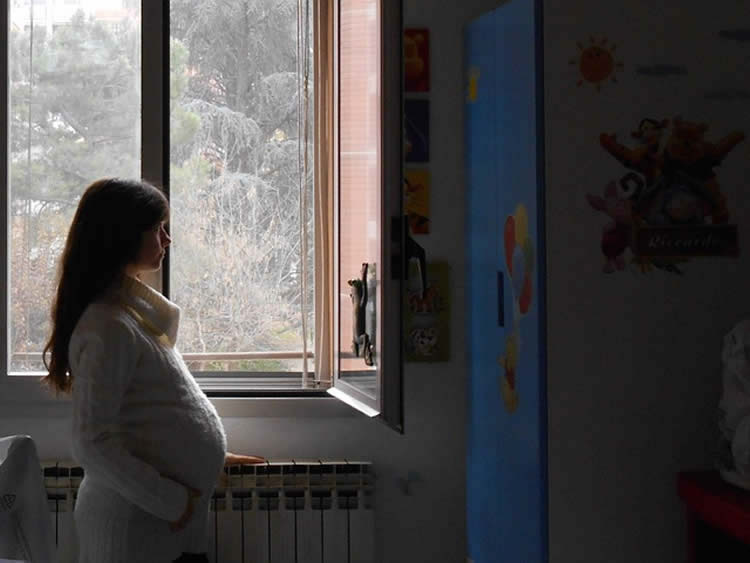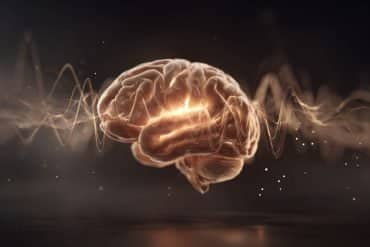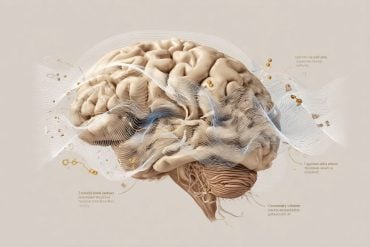Summary: University of Otago researchers report children have an increased risk of developing cognitive deficits linked to schizophrenia if their mother’s immune system was activated as a result of infection during pregnancy.
Source: University of Otago.
If a mother’s immune system is activated by infection during pregnancy, it could result in critical cognitive deficits linked to schizophrenia in her offspring, a University of Otago study has revealed.
Lead author Dr Ryan Ward, of the Department of Psychology, says schizophrenia is thought to result from an interaction of genetic and environmental “hits”. Over time, the combination of these hits leads to development of the disease.
“One environmental hit that has been shown to be a significant risk factor is activation of the maternal immune system, likely caused by illness during pregnancy,” he says.
The study, recently published in the journal Plos ONE, found activation of the maternal immune system in rats was sufficient to produce impaired timing, which is likely critical to other schizophrenia symptoms and impairments.
Impaired ability to judge time accurately is a primary symptom in patients and this is also thought to be related to other symptoms, such as hallucinations, and cognitive impairment.
The study revealed adult offspring, whose mothers experienced infection during pregnancy, overestimated time, similar to patients with schizophrenia.
This is the first study to show that maternal immune system activation by itself is sufficient to produce timing impairments, indicating it could be responsible, in the absence of other risk factors such as genetic differences, for one of the most robust and detrimental schizophrenia-relevant impairments in humans.

As a result, Dr Ward recommended pregnant women be vigilant with their health.
“Taking extra care during pregnancy should be a primary goal for expectant mothers and healthcare providers, as illness during this time can have far-reaching consequences. For those with a family history of mental illness, this becomes even more important.’’
It is hoped research such as this will result in improvements to the diagnosis, prevention and treatment of schizophrenia.
Source: Ryan D. Ward – University of Otago
Publisher: Organized by NeuroscienceNews.com.
Image Source: NeuroscienceNews.com image is in the public domain.
Original Research: Full open access research for “Maternal immune activation in rats produces temporal perception impairments in adult offspring analogous to those observed in schizophrenia” by Ashley R. Deane, Jessica Millar, David K. Bilkey, and Ryan D. Ward in PLOS ONE. Published online November 6 2017 doi:10.1371/journal.pone.0187719
[cbtabs][cbtab title=”MLA”]University of Otago “Link Between Infection and Schizophrenia Symptoms Discovered.” NeuroscienceNews. NeuroscienceNews, 22 November 2017.
<https://neurosciencenews.com/infection-schizophrenia-8003/>.[/cbtab][cbtab title=”APA”]University of Otago (2017, November 22). Link Between Infection and Schizophrenia Symptoms Discovered. NeuroscienceNews. Retrieved November 22, 2017 from https://neurosciencenews.com/infection-schizophrenia-8003/[/cbtab][cbtab title=”Chicago”]University of Otago “Link Between Infection and Schizophrenia Symptoms Discovered.” https://neurosciencenews.com/infection-schizophrenia-8003/ (accessed November 22, 2017).[/cbtab][/cbtabs]
Abstract
Maternal immune activation in rats produces temporal perception impairments in adult offspring analogous to those observed in schizophrenia
The neurophysiology underlying temporal perception significantly overlaps with areas of dysfunction identified in schizophrenia. Patients commonly exhibit distorted temporal perception, which likely contributes to functional impairments. Thus, study of temporal perception in animal models of the disease may help to understand both cognitive and neurobiological factors involved in functional impairments in patients. As maternal immune activation (MIA) has been shown to be a significant etiological risk factor in development of schizophrenia and other developmental psychiatric diseases, we tested interval timing in a rat model of MIA that has previously been shown to recapitulate several behavioural and neurophysiological impairments observed in the disease. Rats were tested on a temporal-bisection task, in which temporal duration stimuli were categorized as either “short” or “long” by responding to a corresponding lever. Data from this task were modeled to provide estimates of accuracy and sensitivity of temporal perception. Parameter estimates derived from the model fitting showed that MIA rats significantly overestimated the passage of time compared to controls. These results indicate that the MIA rat paradigm recapitulates timing distortions that are phenotypical of schizophrenia. These findings lend further support to the epidemiological validity of this MIA rat model, supporting its relevance for future research into the role of maternal immune activation in producing neurobiological and behavioural impairments in schizophrenia.
“Maternal immune activation in rats produces temporal perception impairments in adult offspring analogous to those observed in schizophrenia” by Ashley R. Deane, Jessica Millar, David K. Bilkey, and Ryan D. Ward in PLOS ONE. Published online November 6 2017 doi:10.1371/journal.pone.0187719






